Magecart skimmers are targeting large public Wi-Fi networks for payment details
Russian-linked cyber criminals are compromising industrial-sized routers for their large data banks


Security researchers have observed Magecart skimmers being used actively on routers designed to support public access networks in order to steal payment information.
The findings were made by experts from IBM's X-Force IRIS team and relate specifically to layer 7 (L7) routers which are typically deployed by businesses such as hotels so many customers can access the network at once.
The researchers said that targeting the industries that use L7 routers is common practice for cyber criminals due to "the rich customer data they possess, which often includes payment card data as well - a hallmark of the Magecart conglomerate".
Magecart-related malware began as code injected into websites and of the twelve known Magecart-affiliated groups, Magecart group 5 (MG5) is the most prominent and the group the researchers believe to be behind the router attack.
The Magecart group are perhaps best known for their high-profile attacks on British Airways, Ticketmaster and Newegg in a highly lucrative formjacking campaign that contributed to the ICO's intention to fine BA 183 million under the GDPR.
Researchers attributed the attack to MG5 based on two JavaScript skimmer file samples they found to have the same author, deliberate naming scheme and upload location of Murino, Russia.
The investigation began as a result of finding MG5-linked code on VirusTotal, a black hat favourite for checking if code was being actively monitored or had been detected.
Get the ITPro daily newsletter
Sign up today and you will receive a free copy of our Future Focus 2025 report - the leading guidance on AI, cybersecurity and other IT challenges as per 700+ senior executives
One script which particularly caught the attention of the researchers was "test4.html", 17 different versions of which had been uploaded from the same group and location, but with minor alterations. Some of these had "catch" in their file name and these files seemed to contain newly inserted try-catch error handling in order to evade detection.
It was based off an old script previously discovered in 2012 called "advnads20.js" - code linked with previous (albeit benign) JavaScript injection of online ads into any and all web pages viewed over hotel Wi-Fi access.
"Injecting JavaScript payloads into the connections of unsuspecting hotel guests is a huge win for scammers looking to gain access to sensitive data or resources," Craig Young, computer security researcher for Tripwire's vulnerability and exposure research team to IT Pro.
"Consider for example someone using the WiFi from a hotel while on a business trip to a satellite office. JavaScript loaded from this hotel WiFi may actually remain executing (through WebWorkers or open tabs) the following morning when the same computer is connected to the corporate intranet. This JavaScript can now, to some extent, relay connections through the unsuspecting employee laptop and onto network resources."
The researchers said the Magecart skimmers aim to inject malicious web resources into the L7 routers as well as injecting malicious adverts that users may have to click in order to access the public network. In doing so, guest payment data can be stolen if they browse through a compromised router.
Ecommerce sites and banks have been advised of the malicious campaign by IBM's researchers and to make necessary changes to protect their customers.

Connor Jones has been at the forefront of global cyber security news coverage for the past few years, breaking developments on major stories such as LockBit’s ransomware attack on Royal Mail International, and many others. He has also made sporadic appearances on the ITPro Podcast discussing topics from home desk setups all the way to hacking systems using prosthetic limbs. He has a master’s degree in Magazine Journalism from the University of Sheffield, and has previously written for the likes of Red Bull Esports and UNILAD tech during his career that started in 2015.
-
 Should AI PCs be part of your next hardware refresh?
Should AI PCs be part of your next hardware refresh?AI PCs are fast becoming a business staple and a surefire way to future-proof your business
By Bobby Hellard
-
 Westcon-Comstor and Vectra AI launch brace of new channel initiatives
Westcon-Comstor and Vectra AI launch brace of new channel initiativesNews Westcon-Comstor and Vectra AI have announced the launch of two new channel growth initiatives focused on the managed security service provider (MSSP) space and AWS Marketplace.
By Daniel Todd
-
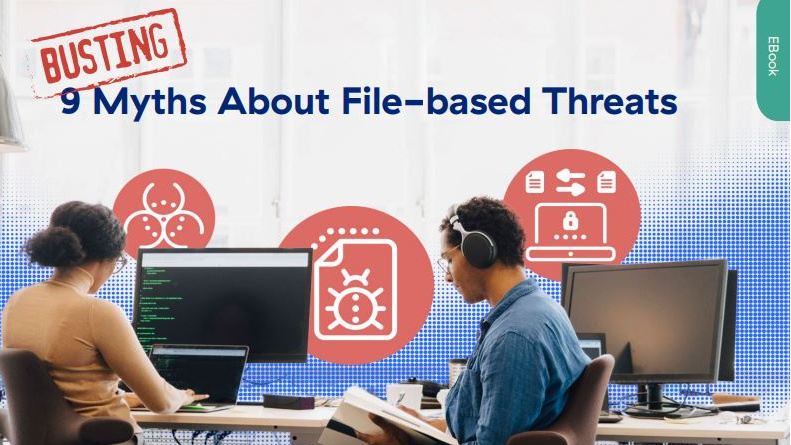 Busting nine myths about file-based threats
Busting nine myths about file-based threatsWhitepaper Distinguish the difference between fact and fiction when it comes to preventing file-based threats
By ITPro
-
 The Total Economic Impact™ of the Intel vPro® Platform as an endpoint standard
The Total Economic Impact™ of the Intel vPro® Platform as an endpoint standardWhitepaper Cost savings and business benefits enabled by the Intel vPro® Platform as an endpotnt standard
By ITPro
-
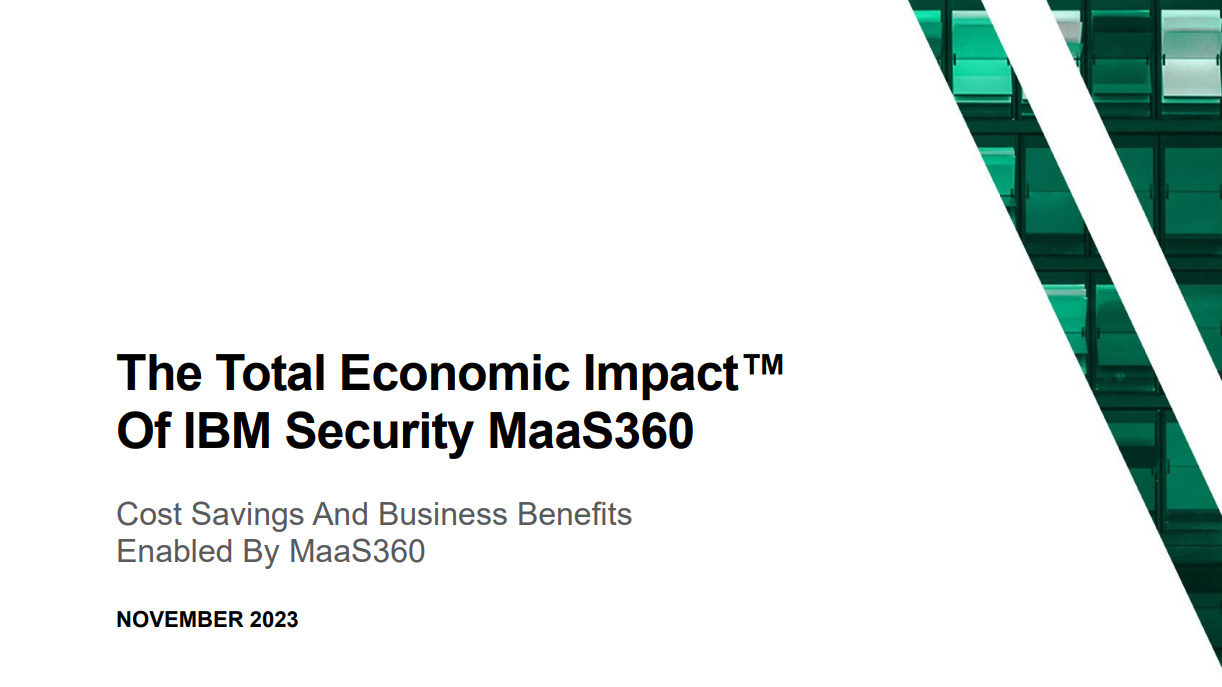 The Total Economic Impact™ of IBM Security MaaS360 with Watson
The Total Economic Impact™ of IBM Security MaaS360 with WatsonWhitepaper Cost savings and business benefits enabled by MaaS360
By ITPro
-
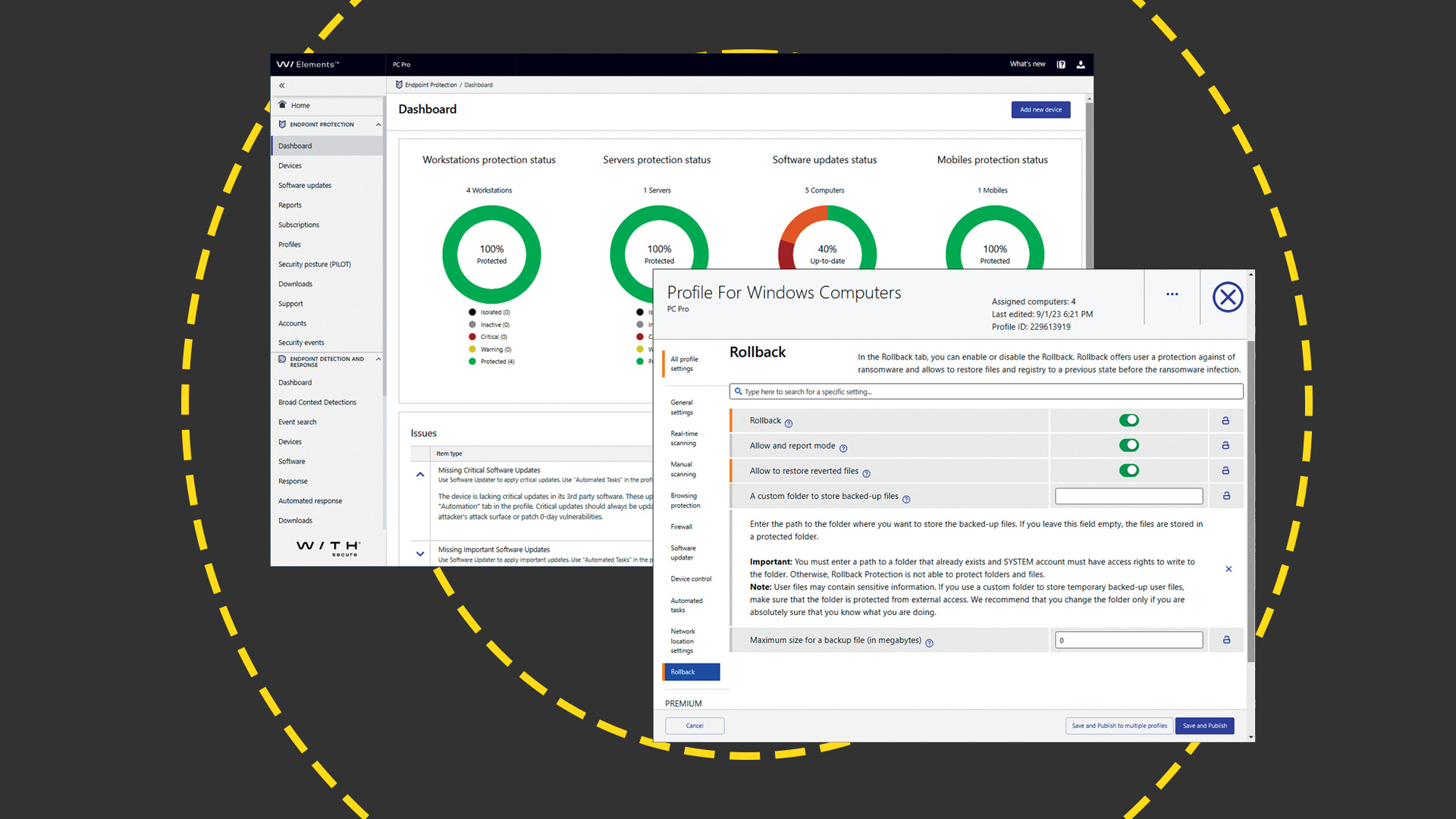 WithSecure Elements EPP and EDR review: Endpoint protection on a plate
WithSecure Elements EPP and EDR review: Endpoint protection on a plateReviews An affordable cloud-managed solution with smart automated remediation services
By Dave Mitchell
-
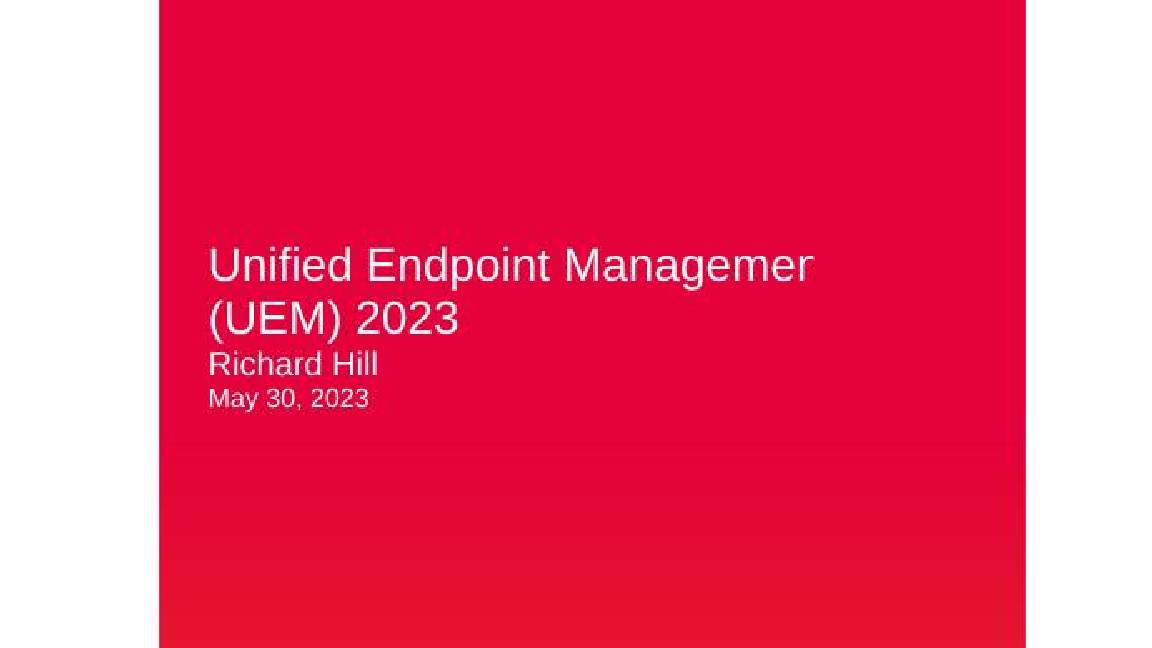 KuppingerCole leadership compass report - Unified endpoint management (UEM) 2023
KuppingerCole leadership compass report - Unified endpoint management (UEM) 2023Whitepaper Get an updated overview of vendors and their product offerings in the UEM market.
By ITPro
-
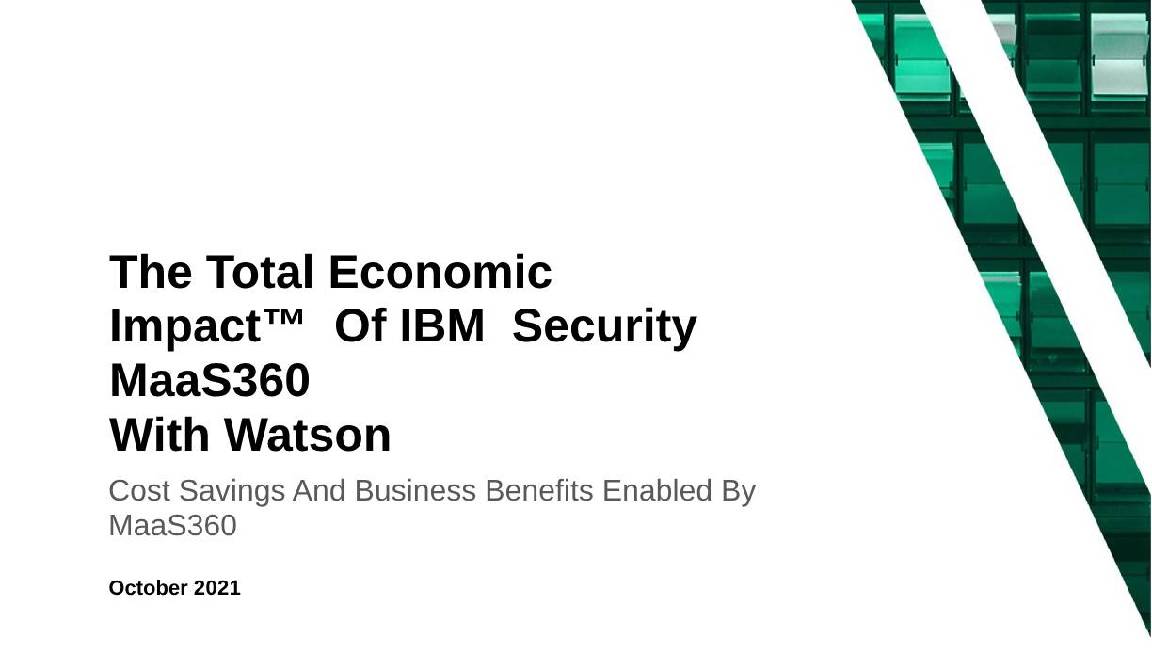 The Total Economic Impact™ of IBM Security MaaS360 with Watson
The Total Economic Impact™ of IBM Security MaaS360 with WatsonWhitepaper Get a framework to evaluate the potential financial impact of the MaaS360 on your organization
By ITPro
-
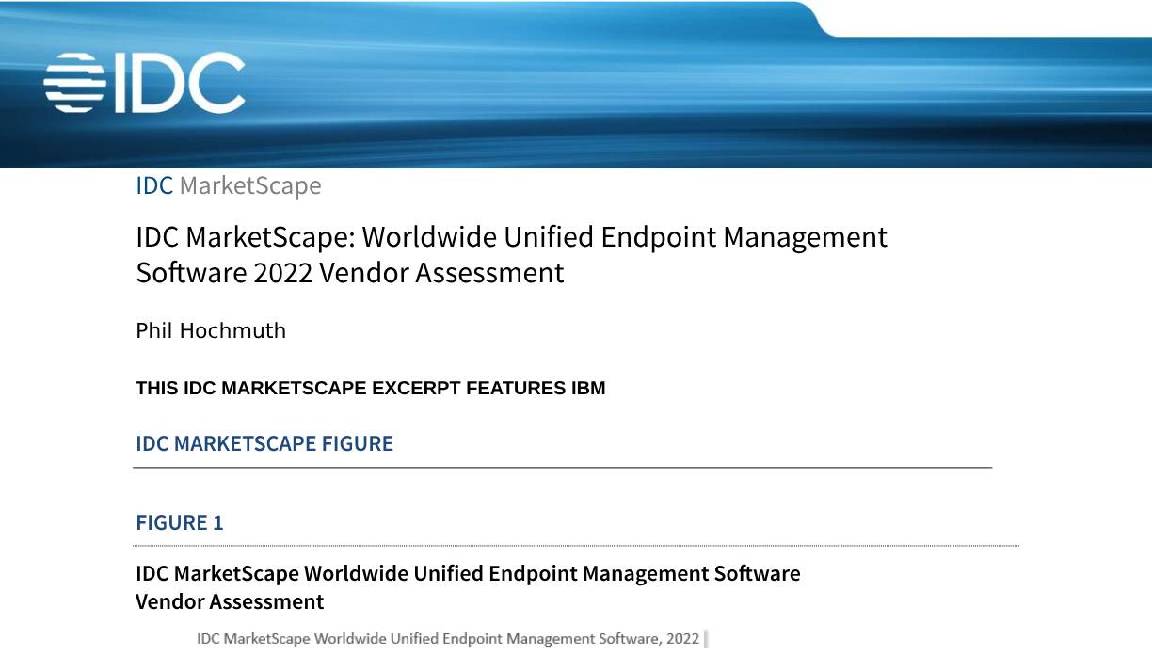 Unified endpoint management software vendor assessment
Unified endpoint management software vendor assessmentWhitepaper Make positive steps on your intelligent automation journey
By ITPro
-
 PowerEdge - Cyber resilient infrastructure for a Zero Trust world
PowerEdge - Cyber resilient infrastructure for a Zero Trust worldWhitepaper Combat threats with an in-depth security stance focused on data security
By ITPro